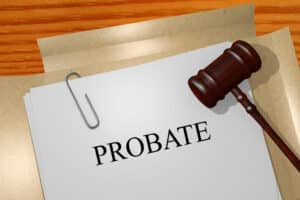
If the deceased person had a will, the will must be filed with the probate court in the county where the deceased person lived at the time of their death
The probate court will appoint an executor, who is responsible for collecting the deceased person’s assets, paying their debts and taxes, and distributing the remaining assets to the beneficiaries named in the will. If the deceased person did not have a will, the court will appoint an administrator to handle the estate.
The probate process can be complex and time-consuming, and it is often advisable to seek the assistance of a probate attorney. If the deceased person’s estate is small, or if they had a trust in place, it may be possible to avoid probate altogether.
Practice Areas
Estate Planning
Estate planning is the process of establishing a Trust, Will, Durable Power of Attorney, and other related documents during your lifetime.
Estate Administration
Probate
Probate is the legal proceeding supervised by the Superior Court used to transfer title to assets when a person is deceased.
Estate Litigation

Advanced Estate Planning
Families with substantial estates require additional strategies beyond a typical Estate Plan to reduce and offset Estate Tax liabilities.

Conservatorship
Our Locations
The quickest way to get assistance is to contact us directly at 310-316-2400 or by emailing us at info@ledwitzlaw.com.
Life Events

New Families

Nearing Retirement

Recent Loss
Recent Blogs
Now that you are recently divorced, what should you do with your estate plan?
On the wedding day nobody expects to get divorced ever. We often think we will ride off into the sunset and live happily ever after. However, the sun rises the next day and problems occur. A day of problems turns into weeks of problems and then into years of problems. Your friends tell you there is a light at the end of the tunnel, and they are right; however, it is the headlight from an oncoming freight train called divorce.
What to do when your child returns to college after the holidays.
We are all worried about our children and especially what would happen to them if they got a severe case of Covid-19 and needed parental help while away at college.
When your child turned age 18, they became an adult in the eyes of the government. And, although you may think they are still a kid, they have many rights that come with adulthood.
So you won the Lottery, Now What?
So you won the lottery? Now what? First Things First Time Limit to collect the money, Don’t rush. Bearer instrument. Sign the back Make copies of the ticket—do not run around town with the actual ticket Do not tell everybody. Keeping it private is one of your biggest assets. How much did you win.
Client Reviews
As Seen in...

Awards, Certifications and Accolades






